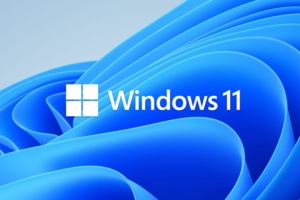Act Now! Windows 10 Support ENDS in 4 Months

Don’t get caught off guard! Support for Windows 10 officially ends on October 14, 2025. After this date, Microsoft will no longer provide software updates, technical assistance, or critical security patches and fixes.
Continuing to use Windows 10 will dramatically increase your exposure to significant risks. Without security updates, your systems become prime targets for cyberattacks, ransomware, and data breaches. You risk costly downtime, loss of sensitive information, and severe compliance issues.
Proactive planning and action are not just recommended, they are critical for your business continuity and security.
Know Your Windows 10 Options
We agree with Microsoft’s recommendation to upgrade all eligible systems to Windows 11. We also understand you may have budget constraints or compatibility issues with older software.
You can check if your PCs will run Windows 11 using Microsoft’s PC Health Check app. If your PC will not run Windows 11, you have options other than buying new devices.
Extended Security Updates (ESU):
- Microsoft will offer an ESU subscription providing critical security updates for Windows 10 for up to three years. While pricing details are not yet available, ESU programs for Windows 7 were more than $100 per device annually. We expect the Windows 10 ESU program will be more expensive.
- This option serves as a temporary bridge but doesn’t address underlying hardware or software compatibility.
Virtual Desktop Services:
- Using virtual desktop services, such as Azure Virtual Desktop, allow you to use your existing PCs to access a robust and secure Windows 11 environment. Virtual desktops work well for hybrid team members and to mitigate the cost of upgrading multiple devices.
- Connect with one of our Cloud Advisors to explore this option.
Plan for Your Windows 11 Transition
Regardless of the strategy you choose, proactive planning is crucial for a smooth and secure transition. Follow these steps to ensure you’re ready:
Assess Your Current IT Environment
- Use Microsoft’s PC Health Check app to determine which devices can run Windows 11, which can be upgraded, and which require replacement. If you use Windows 10 in embedded systems, check with your vendor.
- Confirm which of your business-critical applications and tools are compatible with Windows 11. Identify necessary software upgrades or migrations.
Prepare Your Budget
- Accurately map the cost of upgrading and/or replacing devices. Keep in mind that older systems, even if upgraded now, may soon require replacement.
- Identify any software upgrade costs.
- Keep in mind any fees for tech support or professional services. You may need or want help transferring applications and data to new devices or setting up virtual desktops.
Develop Your Transition Plan & Data Strategy
- Plan your timing and procedures for upgrades, purchases, and migrations. Focus on preventing data loss during migration and consider staging your rollout in phases to minimize disruption.
- Crucially, ensure all critical data is securely backed up before upgrading or migrating systems.
- Remember to allow time to test critical software on Windows 11 before upgrading.
Train Your Team
- Provide resources and help your team become familiar with the Windows 11 interface and new features.
- If you are upgrading your business software for compatibility, you may want to provide additional training on new functionalities and capabilities.
- Stay Informed: Monitor Microsoft’s official updates and announcements. Keep current with regarding Windows 10 end of life and Windows 11 developments.
Cumulus Global Will Help
Plan Now; Act Soon. As with any major upgrade, we expect demand for PCs, laptops, and technical services will increase as the deadline nears. Waiting may result in delays and missed deadlines. Losing Windows 10 support can result in costly business disruptions.
For assistance, schedule a brief, free call with one of our Cloud Advisors to discuss your assessment, plan, and upgrade needs, priorities, and budget.
About the Author
 Allen Falcon is the co-founder and CEO of Cumulus Global. Allen co-founded Cumulus Global in 2006 to offer small businesses enterprise-grade email security and compliance using emerging cloud solutions. He has led the company’s growth into a managed cloud service provider with over 1,000 customers throughout North America.
Allen Falcon is the co-founder and CEO of Cumulus Global. Allen co-founded Cumulus Global in 2006 to offer small businesses enterprise-grade email security and compliance using emerging cloud solutions. He has led the company’s growth into a managed cloud service provider with over 1,000 customers throughout North America.




